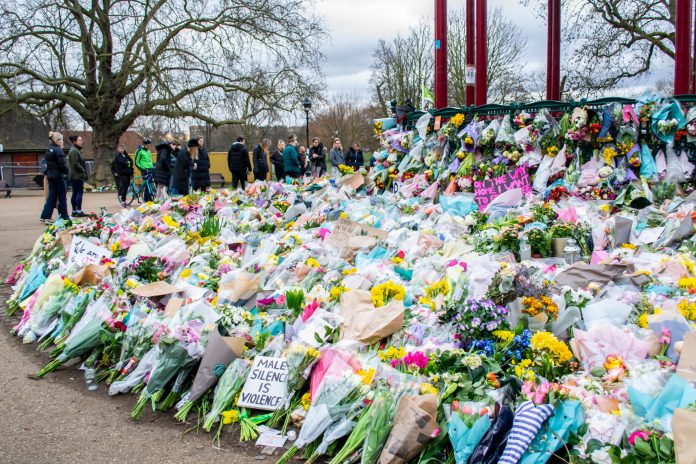Francesca Kirby, barrister at Red Lion Chambers, considers if there will be a shift in sentencing and UK police culture following reports of misconduct in the force
Earlier this month, it was reported that Metropolitan police officers Deniz Jaffer and Jamie Lewis pleaded guilty to offences of misconduct in a public office, both having taken and shared photographs of the bodies of murdered sisters Bibaa Henry and Nicole Smallman. Following this, the mother of the sisters Ms Mina Smallman called on Dame Cressida Dick, the commissioner of the police force, to “get the rot out of the MET.”
With sentencing due in December 2021, there has been a marked increase in reports of alleged police misconduct taking place across the profession.
Greater scrutiny of police culture?
This all comes in the wake of the sentencing hearing of former police officer Wayne Couzens on the 30 September 2021, which will remain at the forefront of the public’s mind for some time to come. Wayne Couzens kidnapped, raped and murdered Sarah Everard in March 2021. The life sentence, with a whole life tariff, handed down by Lord Justice Fulford sent a clear message about the unique position of the police. Lord Justice Fulford commented that the police have powers of coercion and control over members of the public, and are expected to act lawfully and in the public interest. “If that is undermined, one of the enduring safeguards of law and order in this country is inevitably jeopardised.”
Lord Justice Fulford equated the misuse of a police officer’s role to kidnap, rape and murder a lone victim of equal seriousness to a murder carried out for the purpose of advancing a political, religious, racial or ideological cause. Lord Justice Fulford was clear to set parameters to his remarks, commenting that “it would need for the police officer to have used his role as a constable in a critical way to facilitate the commission of the offence; if his professional occupation was of little or no relevance to the offending, then these considerations clearly would not apply.”
Both cases mentioned above have triggered greater scrutiny of police culture, including sexism and inappropriate use of social media. These concerns have only been compounded by reports of officers being investigated or made the subject of misconduct proceedings. For example, four police officers are under investigation for allegedly participating in a WhatsApp group with Wayne Couzens, sharing racist and misogynistic messages between them. Outside of that case, on the 6 November 2021, there were reports of constables and sergeants working at Hastings police station being disciplined after messages were shared between them of a sexual and misogynistic nature. Shortly following that, on the 8 November 2021, the Independent Office for Police Conduct found examples of “canteen culture online” with officers sharing misogynistic, racist, homophobic content and jokes about the victims of crime. All of these examples do not help to restore the public’s trust and confidence in the police.
Institutional change is needed
This article should not be construed as an attack on the large majority of upstanding officers in our police force. We must also recognise the difficult position of those within the force who encounter inappropriate behaviour from their colleagues. Simply urging police officers to report such behaviour oversimplifies the issue. There may be many complicated reasons why someone is afraid to come forward, to name and shame could instigate a fear of reprisal, fear of not being believed, or fear of losing their job. Institutional change is needed to address the culture that keeps voices marginalised, and the announcement of the review of the internal standards and culture of the police force is a welcome one.
“Institutional change is needed to address the culture that keeps voices marginalised”
Returning to the courts, it is hard to see how the powerful sentencing remarks in the case of Wayne Couzens will not affect how police officers who use their role to facilitate the commission of an offence are sentenced. Whilst we already have within our sentencing guidelines the presence of abuse of trust as an aggravating factor, the sentencing of Wayne Couzens brings this aspect into greater focus and emphasised the effect it has on society, from the powerful movement that has followed.
In light of this and looking towards to the sentencing of Deniz Jaffer and Jamie Lewis, I do not think any practitioner would be surprised if we see greater emphasis within sentencing remarks placed on the fact that their behaviour has undermined public trust and confidence in the police force as an aggravating feature.




![Europe’s housing crisis: A fundamental social right under pressure Run-down appartment building in southeast Europe set before a moody evening sky. High dynamic range photo. Please see my related collections... [url=search/lightbox/7431206][img]http://i161.photobucket.com/albums/t218/dave9296/Lightbox_Vetta.jpg[/img][/url]](https://www.openaccessgovernment.org/wp-content/uploads/2025/04/iStock-108309610-218x150.jpg)






